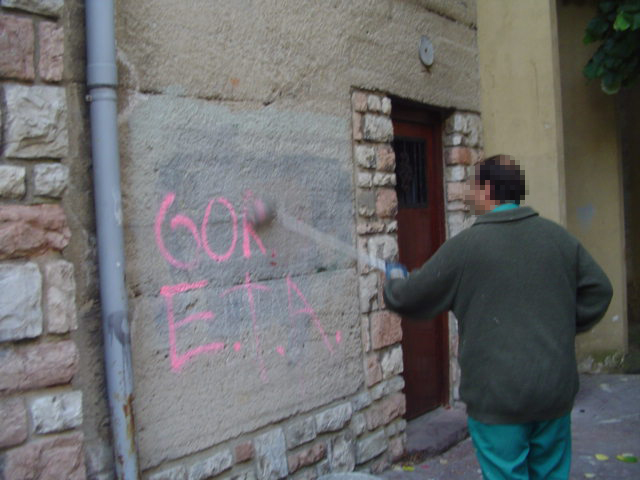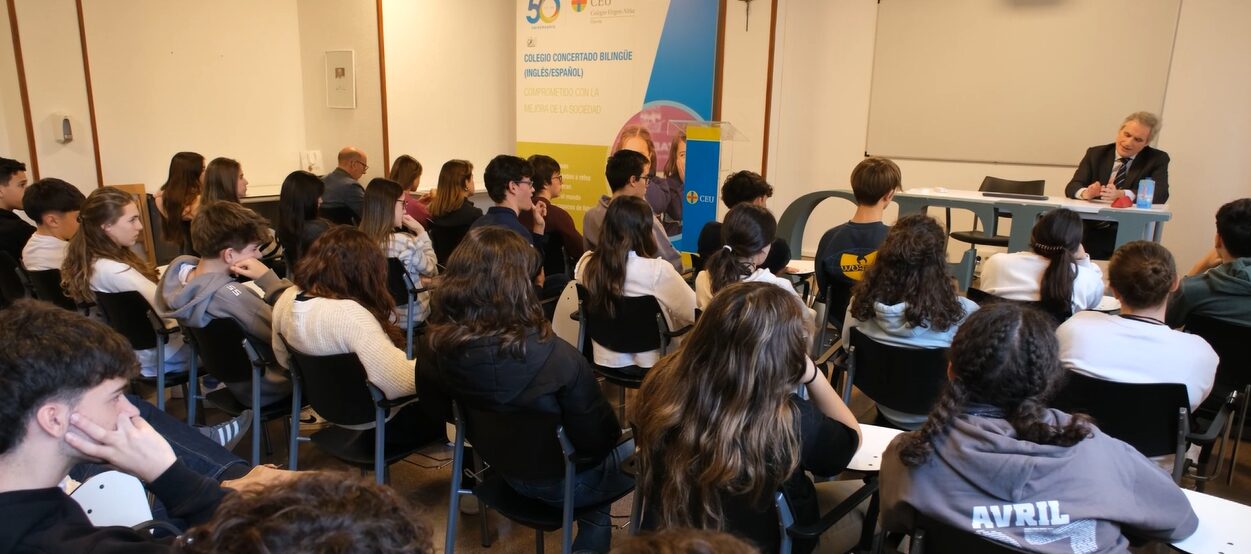The democratic legitimation of ETA

In the report “The democratic legitimation of ETA: causes, actors and consequences” of the Observatorio CEU de Víctimas del Terrorismo CEFAS we analyze the causes, perpetrators and consequences of the whitewashing of ETA and its political project based on violence, extortion and the rupture of the unity of Spain.
In the general elections of July 2023, EH Bildu, ETA’s heir party that has still not condemned its crimes –“ETA’s figurehead”, according to the Supreme Court– obtained 333,362 votes, far ahead of the second Bas[1]que nationalist political force, the PNV (Partido Nacionalista Vasco – Basque Nationalist Party), which received 275,782 votes. For the first time in democracy, a party that has already been outlawed – under other names – for belonging to a terrorist organisation, has now amply surpassed the hegemonic party in the Basque Country by more than 55,000 votes.
This fact, and its increasing prominence in Spanish political life, has led the CEU Observatory for Victims of Terrorism of the Centre for Studies, Training and Social Analysis (CEFAS) to produce this report, which attempts to explain how it has been possible to democratically legitimise a political option based on violence, extortion and the rupture of the unity of Spain. In short, this paper aims to examine the causes, actors and consequences of the whitewashing of ETA and its political project.
• The legitimation of the political arm of a terrorist organisation with a clear totalitarian ideology implicitly entails the delegitimation of the democratic system it seeks to dismantle. This strategy has been shared and articulated both by ETA’s political representatives –EH Bildu and its many predecessors– and by the Basque Nationalist Party, which bears the serious historical responsibility of having been the political seed of the birth of ETA.
• After the kidnapping and murder of the PP (Partido Popular – conservative party) councillor in Ermua, Miguel Ángel Blanco, on 10 July 1997, a wave of public indignation was unleashed against ETA, which led to the so-called “spirit of Ermua”. Faced with this situation, the PNV saw its hegemony in danger and chose to make a pact with Herri Batasuna and the rest of the nationalist movement calling for a break with ETA in order to ensure its survival by signing the ‘Estella Pact’ (September 1998). This separatist communion has continued to legitimise ETA over time, from the Government pact between the PNV and HB (Herri Batasuna – predecessor of EH Bildu) in May 1999 to the demonstration called jointly by both formations on 4 November 2003 against the High Court of Justice in the Basque Country for annulling several articles of a Basque Government decree that prioritised the demand for and use of the Basque language, to the detriment spanish, in Basque public administrations.
• In this regard, it is worth noting that the anti-terrorist policy promoted by Aznar’s government was key to restoring Spaniards’ confidence in the defeat of ETA without paying a political price for doing so: the ‘pact for freedoms and against terrorism’ between PP and PSOE (Partido Socialista Obrero Español – Spanish Socialist Workers’ Party) (2000), a new Political Parties Act (2002) that outlawed the various denominations of ETA’s political wing, and gave firm support for the work of the State Security Forces and Corps, social mobilisation, and constant and determined work by the judiciary.
• The Manichean discourse that advocates the lack of democratic guarantees to justify the use of violence was key to ETA’s negotiation process with the Socialist government of José Luis Rodríguez Zapatero. The end-of-terrorism model of this process also contributed to the delegitimation of democracy by accepting those who justified terrorism as valid speakers. The PSOE supported the PNV in legitimising ETA’s political arm, first by breaking the unity of the constitutionalist parties and then by failing to honour the pact with the PP, putting its own party interests before the interests of the country. It was Zapatero who returned ETA to the institutions, an essential political price to pay in order to set himself up as the leading figure in the end of violence and thus guarantee his continuance in the government.
• The ‘definitive end’ of ETA’s terrorist activity in 2011 highlighted the enormous differences between two antagonistic models of the fight against terrorism, one based on political negotiation with terrorists –Rodríguez Zapatero’s government– and the other that relied on the application of the rule of law to combat terror –José María Aznar’s government–.
• During Mariano Rajoy’s government, the PP refrained from articulating a strategy against EH Bildu, going no further than to express its indignation when opposing the terrorists’ illegitimate political project. As Mikel Azurmendi pointed out, the PP “did not have the moral or political courage to put an end to this shameful democratic relaxation when it had an absolute majority”.
• The anomalous arrival of Pedro Sánchez to the leadership of the Spanish government consolidated and extended the strategy initiated by Rodríguez Zapatero of politically legitimising ETA’s successors. What is more, not only have they agreed on laws and budgets at the national level, but now, after the November 2023 investiture, they are indispensable partners of the PSOE in order for the latter to govern the country.
• Currently, PNV and EH Bildu are fighting for political hegemony in the Basque Country, after the debt incurred by nationalism for legitimising ETA was forgiven. With the criminals exempted from the basic premise that should have been their permanent disqualification from political life and their murderous trajectory covered up, it is only natural that they should be strengthened electorally.
• The problem lies not only in the presence of ex-terrorists on the EH Bildu lists, but also in the presence of a party that justifies their crimes, thus creating and transmitting a memory that guarantees the impunity of nationalist terrorism to a society that is a powerless witness to the triumph of the terrorists.
• First there was the battle of silence, then the battle of language, and now it is time to face the battle of the narrative, which would be better described as the battle for the Truth. With a few honourable exceptions, the Spanish media have offered a biased view of the terrorist phenomenon which, ultimately, has been decisive in imposing a self-serving narrative that has normalised the presence of ETA’s political project in society. The prevailing do-gooder trend has ended up considering that the participation of the political arm of the terrorists in our institutions is a triumph of democracy, when precisely the opposite is true: allowing the return of those who consider the use of violence to achieve political objectives to be valid only contributes to furthering institutional degradation and to lowering the quality of our democracy.
• In short, it has ultimately imposed a false narrative that promotes the whitewashing of ETA’s political arm and distances us from the truth that Spaniards deserve, after fifty years of nationalist terrorism. The PSOE has come to accept the demands of nationalism in order to prevent the aims it shared with ETA, even though they often differed from its own ideals, from contaminating its future. The deception has been so successful that, as we mentioned at the beginning, the political arm of ETA now outnumbers traditional nationalism in terms of votes, endangering the latter’s hegemony. Unfortunately, the situation predicted by Joseba Arregui in 2019 has turned out to be confirmed: “It is not only necessary to do politics as if ETA does not exist, but as if ETA had never existed”.
RELATED
CEU con las Víctimas | Rafael Carriegas en el Colegio CEU Virgen Niña
Los alumnos del CEU de Vitoria han asistido a la ponencia del exdiputado del PP e hijo de Modesto Carriegas, asesinado por ETA en 1979.
Cristina Cuesta alienta a los alumnos del Colegio CEU a conocer la historia de ETA
Cristina Cuesta ha visitado a los alumnos del Colegio CEU Sanchinarro para hablarles de la historia de ETA y la necesidad de que los más jóvenes la conozcan.

